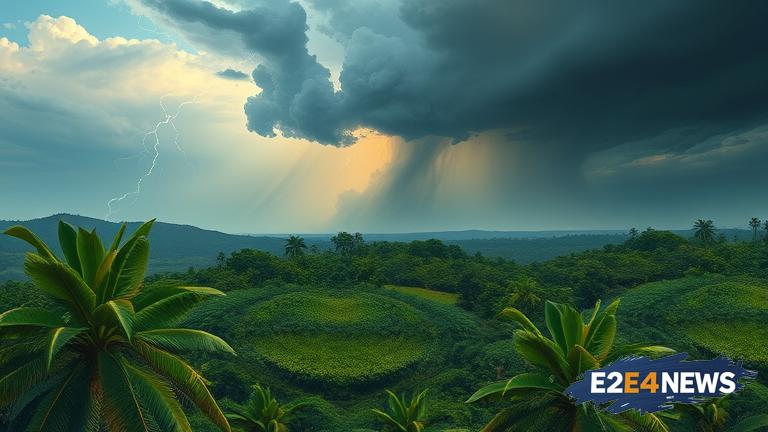The global coffee industry is facing a perfect storm of challenges, from climate change to tariffs and droughts, which are expected to drive up coffee prices in the coming months. Climate change is altering weather patterns, leading to more frequent and severe droughts, floods, and heatwaves, all of which can damage coffee crops and reduce yields. In Brazil, the world’s largest coffee producer, a severe drought in 2021 led to a significant decline in coffee production, resulting in higher prices. Similarly, in Vietnam, the second-largest coffee producer, droughts and heatwaves have affected coffee yields, contributing to rising prices. The Trump administration’s tariffs on coffee imports from certain countries have also added to the upward pressure on prices. Furthermore, the COVID-19 pandemic has disrupted global supply chains, leading to shortages and price increases. As a result, coffee prices have been rising steadily over the past year, with some types of coffee experiencing price increases of up to 20%. The effects of climate change on coffee production are expected to worsen in the coming years, with rising temperatures and changing precipitation patterns altering the suitability of land for coffee production. This could lead to a decline in global coffee production, resulting in even higher prices. In addition to climate change, the coffee industry is also facing challenges from pests and diseases, which can damage coffee crops and reduce yields. The use of pesticides and other chemicals to control these pests and diseases can also have negative environmental impacts, contributing to the degradation of soil and water quality. To mitigate these challenges, coffee producers are adopting more sustainable practices, such as shade-grown coffee and organic farming. However, these practices can be more expensive and may not be feasible for all producers. The impact of rising coffee prices will be felt by consumers around the world, with many facing higher prices for their daily cup of coffee. In the United States, coffee prices have been rising steadily over the past year, with some types of coffee experiencing price increases of up to 15%. The effects of climate change on coffee production will also have significant economic and social impacts on coffee-producing countries, where coffee is often a major source of income for small-scale farmers. In Brazil, for example, coffee production is a significant contributor to the country’s economy, and a decline in production could have major economic and social implications. Similarly, in Vietnam, coffee production is an important source of income for many small-scale farmers, and a decline in production could lead to poverty and food insecurity. To address these challenges, governments, international organizations, and the private sector must work together to support coffee producers and promote sustainable coffee production practices. This could include providing financial support to coffee producers, investing in research and development to improve coffee yields and disease resistance, and promoting sustainable coffee production practices. Additionally, consumers can play a role by choosing to buy sustainable and fair-trade coffee, which can help to support coffee producers and promote more equitable and sustainable coffee production practices. Overall, the challenges facing the global coffee industry are complex and multifaceted, requiring a coordinated and sustained response from governments, international organizations, and the private sector. By working together, we can help to ensure a sustainable and equitable coffee industry for generations to come.
